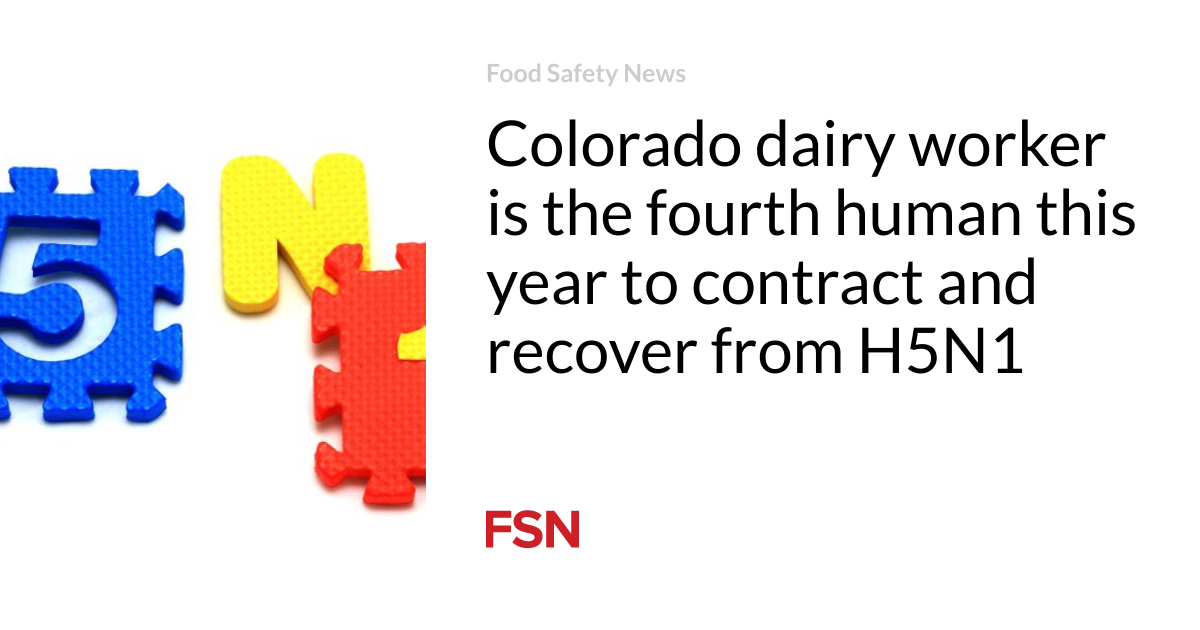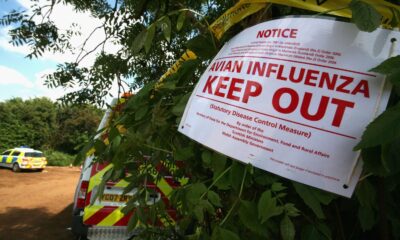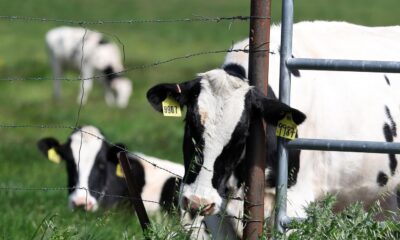Food
A Colorado dairy worker has become the fourth person this year to contract and recover from H5N1

A man who works on a dairy farm in northeastern Colorado has become the fourth person in the United States to test positive for bird flu this year. He had direct contact with infected livestock and his symptoms included pink eye.
The Colorado Department of Public Health and Environment reports that in coordination with the U.S. Centers for Disease Control and Prevention and the The Colorado Department of Agriculture has identified a human case of bird flu H5 infection linked to a multi-state virus outbreak in dairy cattle.
The adult male had mild symptoms and reported only conjunctivitis (pink eye). He reported his symptoms to state health officials, who tested him for influenza at the State Public Health Laboratory.
“Specimens forwarded to CDC for additional testing were positive for bird flu. CDPHE administered the individual antiviral treatment with oseltamivir according to CDC guidelines. He has recovered.” The report said. “This case involves a dairy farm worker in northeastern Colorado who had direct exposure to dairy cattle infected with bird flu.”
No additional details have been provided to protect patient privacy, and the state wants the public to take this information on faith. Three others who worked with livestock in Michigan and Texas suffered from bird flu earlier this year and recovered. So did a poultry worker from Colorado in 2022.
“Our partnership with the Colorado Department of Agriculture has been critical in disseminating information to dairy farmers across the state,” said Jill Hunsaker Ryan, executive director of CDPHE. “Coloradans must have confidence that the state is doing everything possible to mitigate the virus.”
According to CDPHE, it is safe to drink pasteurized milk and eat properly processed and cooked dairy, beef and poultry products in the United States. Correct handling and preparation of poultry, meat and eggs kills bacteria and viruses, including bird flu viruses. An updated study released earlier this week by the FDA and USDA strengthened the safety of the commercial milk supply. However, health officials continue to warn against drinking raw, unpasteurized milk.
The bird flu outbreak has so many moving parts that the Centers for Disease Control and Prevention is keeping much of it on an ever-changing scoreboard.
On July 1, the number of poultry deaths was 97,263,548
States involved in the outbreak that started in early 2022: 48
As of July 1, dairy herds with infections: 136 in 12 states
And 9,523 wild birds have been found with the bird flu virus in all 50 states.
Experts were taken aback when bird flu was found in one dairy herd after another since about March. The U.S. Food and Drug Administration (FDA) recently reported that pasteurized supermarket milk remains safe from the highly pathogenic H5N1 avian virus.
These findings were based on more recent studies showing that contagious bird flu remained after typical pasteurization. More recent research replicated commercial pasteurization procedures and found that dairy milk is safe. Those who consume raw milk without pasteurization cannot say the same.
July announced that drugmaker Moderna will receive $176 million from the US government to develop a messenger RNA-based bird flu vaccine for humans. The H5 vaccine is in clinical development and phase 3 trials could begin in 2025.
This action came after it was announced in mid-June that there is little or no natural immunity in humans against the H5N1 bird flu virus. Through blood tests, the Centers For Disease Control showed that Americans had “extremely low to no population immunity” against the H5N1 bird flu virus.
The virus may be susceptible to antiviral medications, and the Department of Health and Human Services (HHS) has 4.8 million vaccine doses on order just in case.
(To sign up for a free subscription to Food Safety News, click here)









